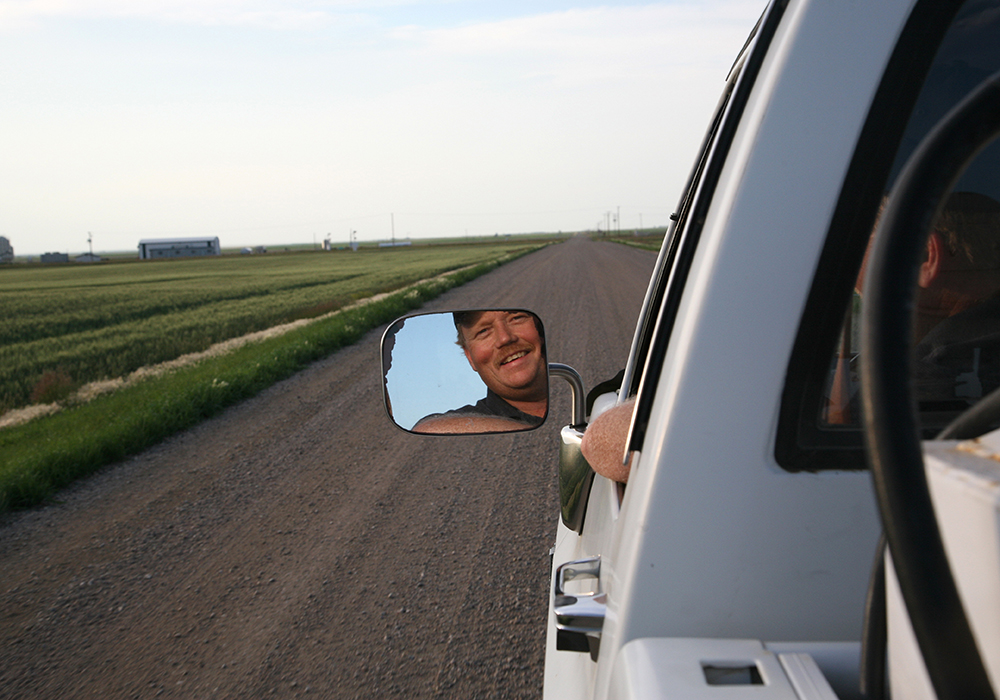My canola sold for $23.17. I didn’t have a lot of it, though. That field did not get enough water. But this is not what I wish to write about. This is my first column of what I hope will be many for The Western Producer. There will be plenty of time to discuss the nitty-gritty of crop production on my Manitoba farm.
In the meantime, I’ll let you in on a little secret. Typically, when I write a column, I sit at my desk, take deep breaths until I feel focused and present. Then I ask myself: If I had your undivided attention for a few minutes today, what would I say?
Read Also

Kochia has become a significant problem for Prairie farmers
As you travel through southern Saskatchewan and Alberta, particularly in areas challenged by dry growing conditions, the magnitude of the kochia problem is easy to see.
It’s been a while since I have written a regular column. The pandemic has been divisive, and it has brought out the worst in some of us. For a time, the ag industry’s pulse was one I didn’t want to take.
Since March of 2020, I have also found it difficult to distinguish the specific challenges facing the ag industry from the general challenge of staying positive and sharp during a time when it’s hard to do either.
I’m sitting, taking deep breaths and what I wish to say to you is something I have thought about a lot since the lockdowns began. It’s about our minds and what it takes to change them.
It’s taken me a while, arguably too long, to realize that my own mental scaffolding — the way I structure arguments, form thoughts and behave — is not the same as everyone else’s. Others think differently than I do. I live in an area that is routinely making news for its high COVID cases and its resistance to comply with measures. What is clear to me isn’t necessarily clear to you. What is obvious to you may not be obvious to me.
I believe we, as farmers, settle into ways of doing things that over time create conditions for blind spots to emerge, and that not being aware of this keeps us from seeing the obvious and adapting to change.
I have blind spots; holes in my logic others can see but I cannot. Beliefs and behaviours that are ideologically driven, but that I believe are based on reason alone. The actual contents of the slurries that form the foundations of our beliefs and behaviours are often elusive. I like to think of it as the goo that keeps life interesting.
We assume that, to consider agriculture more favourably, city dwellers and lawmakers only need to see an active farm, observe what a farmer does on a regular basis and read the science supporting our practices and products.
We assume that if people were exposed to these things, they would change their minds. What is clear to you may not be clear to others.
To change a mind is possible, but difficult. I’m stubborn and often unwittingly and unnecessarily defensive. My mind does not change very easily. When it happens, it’s not clear how. It’s certainly not science alone. We’d all lead different lives and change our farming practices, if we were actually driven and convinced by the same logic and science that we so desperately want lawmakers and our adversaries to take seriously.
When I returned to the farm in 2012, environmental issues were not as front and centre as they are now.
Carbon sequestering, net-zero farming and emissions reduction targets were mere whispers often dismissed as murmurings from anti-ag environmentalists.
In other words, the farm I was raised on and the farm I came back to almost 10 years ago didn’t operate with these guiding principles. This is not a judgment. I don’t think many farms did. The scaffolding at the time didn’t include concerns over emissions or climate change. Rather, it elevated machines and advances in chemistries/genetics as the conduits through which agricultural progress could be realized.
This has changed. The world has changed. The farm as it is today, including its machines and genetics, is still defensible and important, but it will need to change.
Our minds need to change. Our scaffolding; the way we think about things (slurries, goo and all), will need to be re-evaluated.
You don’t have to be on-board with everything I said here. It would be suspicious if you were. But I am pleading with you to believe this: our beliefs and attitudes toward things are made up of messier things than just pure science or absolute logic.
I’ll make a pact with you. I’ll keep an eye out for my blind spots, if you’ll keep an eye out for your own.

















